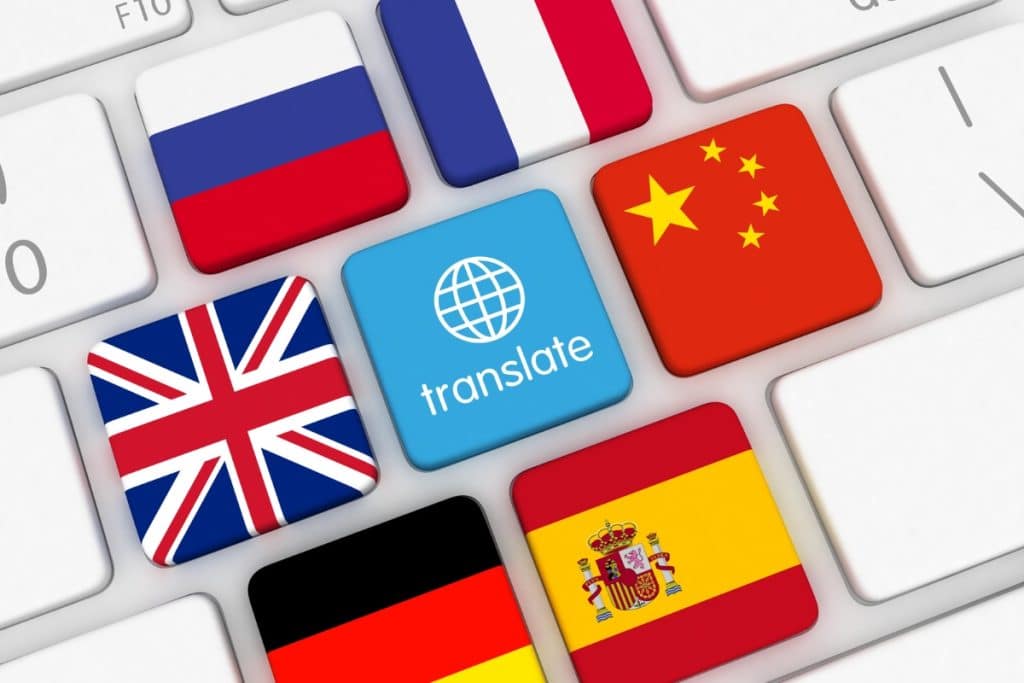Language is a significant consideration for global companies that cannot be neglected or overlooked. These firms must establish a system where information can seamlessly move despite the different languages involved. The best approach to achieving a multi-language system in your organization is integrating your accounting, CRM, and ERP functions.
For most global firms, a practical approach to streamlining communication is integrating GoldFinch, Salesforce, and Xledger. Collectively, they support over 20 languages, allowing companies with multi-national staff to speak the same language.
Let’s dive deeper. Here is why you need a multi-language ERP and its benefits.
Signs You Need a Multi-Lingual ERP
Every business looks to expand and open up shop in other parts of the world. It means you’ll have to deal with employees speaking a different language and customers operating under different fiscal laws. Configuring a multi-lingual system is the best solution to streamline operations despite the varied languages.
The following are signs you need a multi-language ERP:
If the Business Operates Globally
Many assume English is the standard language for communication globally. However, millions of businesses outside the US operate in foreign languages. A significant percentage of businesses adopt their location’s local language to ensure they don’t miss out on opportunities.
You’ll need a multi-lingual ERP if your company has branches in different countries with varying local languages. It will help make your business more flexible to adopt other languages while boosting local brand exposure.
If Your Business Is Local but Has Multi-Lingual Employees
You might own a local business, but not all employees come from the same region and speak the same language. One area can have people from different places. For example, data from the Translators Without Borders survey shows between 350 and 430 languages in the USA.
Businesses with employees speaking different languages need a multi-lingual ERP to facilitate communication and streamline operations. This configuration reduces errors made by employees during translation by decrypting each language.
If Your Customers Speak a Different Language
Global companies have customers from all corners of the world. Since customers are essential assets to any business, companies need to ensure they can understand each other. Not having a system that can handle multiple languages will compromise the user experience for some customers.
A multi-lingual ERP makes it easy to deal with global customers. The system understands E-invoices, specifications, and logistics details in different languages and translates to the one you are comfortable with. Failing to understand your customers because of language differences is disastrous but avoidable.
If It Is a Compliance Requirement
Each country has different operating laws. In some areas, you need to meet good corporate citizenship by satisfying the compliance requirements in all regions of operation and having a multi-language ERP. The system makes it easy to coordinate activities, and failure to adhere can lead to a business shutdown.
If You Have International Suppliers
Your global business needs a multi-language ERP to effectively manage and coordinate international vendors. Some of these suppliers speak a different language from yours, and you might need some assistance with the translations and calculations. It is essential to communicate specifications early and accurately when making purchases to avoid production delays.
If Your Financier Speaks a Different Language
Several key stakeholders can influence your decision to implement a multi-lingual ERP, and your financier is one. Maintaining consistent and valuable communications with your financier ensures you are on the same page in all transactions. The multi-language ERP will help with communication and also translate financial reports effortlessly.
Are There Benefits to Implementing a Multi-Lingual System?
There are dozens of benefits global companies enjoy from implementing a multi-language ERP. The benefits range from your brand dominating a more extensive geographical presence to eliminating the language barrier. You can read more about these multi-lingual benefits in this piece.
Here are the benefits of a multi-language ERP for a global company:
Larger Geographical Presence
The primary advantage of having a multi-lingual ERP is it allows you to dominate a larger geographical region by improving communication. Since the platform supports different languages, you can seamlessly manage employees in other areas—the more extensive your geographical presence, the more profits you can pull in.
Eliminates Language Barrier
Multi-lingual ERPs like GoldFinch help solve the language barrier issue in most global companies. The different branches can interact and collaborate seamlessly despite the distance gap by facilitating smooth communication.
Promotes Scalability
All businesses looking to expand their operations into new regions must face the language issue. Implementing a multi-language system means your company understands the languages used while accommodating unique business practices. It also allows consistent data entry and accurate report generation regardless of the language.
Serves a Wider Audience
The ability to understand different languages means you’ll provide your services to an even wider audience. Your business will find penetrating foreign markets easier, especially when using the local dialect to communicate and market products. It also maximizes customer satisfaction by emphasizing personalized user experiences for all customers.
Why GoldFinch, Salesforce, and Xledger?
You’ll need a powerful combination of software to effectively run operations in a global company. GoldFinch ERP, Salesforce CRM, and Xledger create the perfect combination for multinational firms to unite all departments. Together, they support over 20 languages, including French, Spanish, and Russian.
According to their website, Salesforce supports 27 languages. The platform automates incoming content translations using Microsoft’s Azure translation service. Note that GoldFinch ERP is 100% natively built on Salesforce.
On the other hand, Xledger is a robust accounting platform famous for its multi-lingual and multi-currency features. The platform supports over 22 languages and almost all major currencies globally. Integrating it into Salesforce provides significant leverage when handling operations and stakeholders in different regions.
Conclusion
You must ensure your global staff speaks a common language for effective communication. And what better way to achieve this than integrating your ERP, CRM, and accounting platform? GoldFinch, Salesforce, and Xledger harmoniously work together to ensure you link company departments and understand the data from each.
Contact us today to get started…we speak your language.



